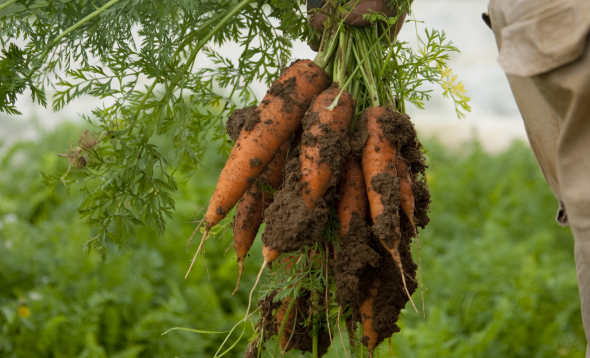That organic living is a conscious health choice
The Dirty Dozen 2019
We all know the drill. Take five servings of fresh fruits and vegetables a day to maintain optimal health.
While some make it a point to go beyond the requisite ‘Five a Day’ to consume a rainbow of fruits and vegetables, many don’t realise that this cocktail of natural vitamins often comes with a nasty side of man-made pesticides.
Why Should You Care About Pesticides?
Designed to kill or deter bugs, many pesticides are carcinogenic or neurotoxic. Hence, reducing our pesticide load - especially for growing children - is crucial for long-term health.
Pesticides also enter the natural food chain through agricultural runoff in conventional farms, so opting for organic doesn't just benefit you, it saves the environment as well.
It’s Too Costly to Sustain an Organic Diet. What Can I Do?
While it would be ideal to stick to an all organic or natural diet, it’s often unfeasible due to the options available or the cost.
As with all things in life, moderation is key. It doesn’t have to be all or nothing when it comes to switching to a diet that dials back on artificial chemicals or hormones.
The American non-profit Environmental Working Group publishes an annual ‘Dirty Dozen’ and 'Clean Fifteen' list of produce that contain the highest levels of pesticide residues.
Take baby steps and start your healthy journey by buying organic variants of these fruits and vegetables:
The Dirty Dozen
Source: Environmental Working Group, 2019
1. Strawberries
2. Spinach
3. Kale
4. Nectarines
5. Apples
6. Grapes
7. Peaches
8. Cherries
9. Pears
10. Tomatoes
11. Celery
12. Potatoes
The Clean Fifteen
1. Avocados
2. Sweet corn
3. Pineapples
4. Frozen sweet peas
5. Onions
6. Papayas
7. Eggplants
8. Asparagus
9. Kiwis
10. Cabbages
11. Cauliflower
12. Cantaloupes
13. Broccoli
14. Mushrooms
15. Honeydew melons


























_1672804154.jpg)

_1611290459.jpg)